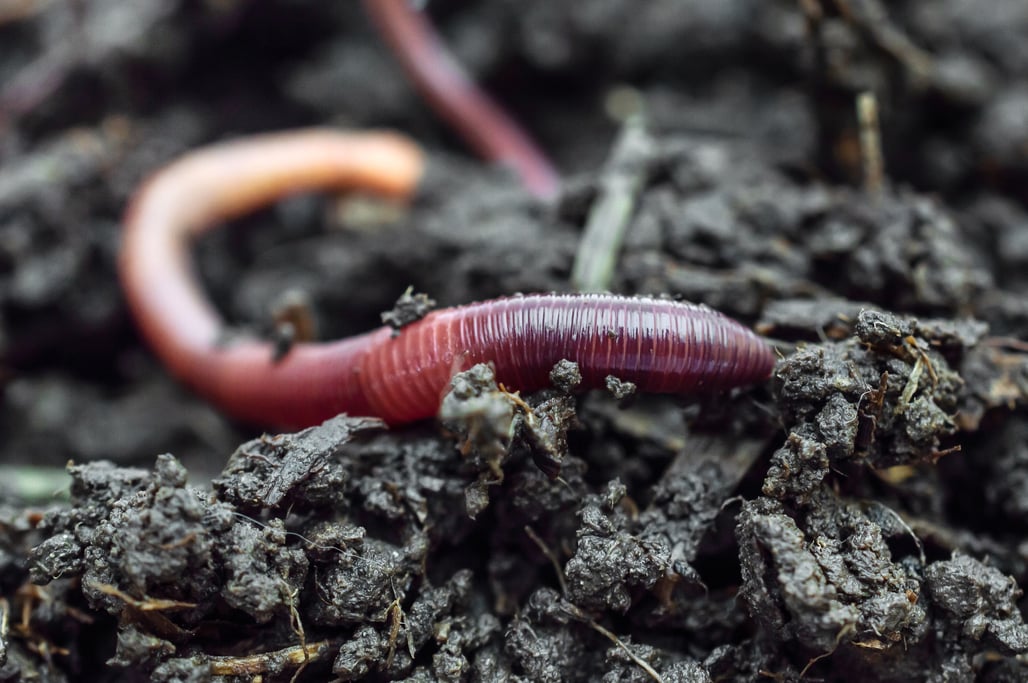
By Karen Phelps - Business Rural North, Winter 2025
The humble earthworm is helping Kiwi farmers to transform their soils and their bottom lines. New Zealand company MyNoke is the world's largest vermicomposting operation by volume and has been pioneering the industrial-scale production of vermicast (pure earthworm castings) since 2007, creating a natural soil amendment that improves farm productivity.
"Healthy soils are the foundation of life, providing the nutrients that sustain us and supporting the balance and stability of our ecosystems," says Jenny Ford, Business Development, Logistics & Marketing Manager at MyNoke. "Our vermicast products help farmers rebuild soil structure and biological activity that may have been compromised through intensive farming practices."
Jenny explains that earthworms are nature's own ‘soil engineers’.
“They aerate the soil as they tunnel through it, improving its structure and allowing roots to penetrate easily. Thanks to earthworms, water, air, and nutrients move more freely, creating an environment where plants can thrive. Through their digestive system, earthworms transform organic matter into nutrient-packed vermicast. The result is a high-quality natural soil conditioner.”
Operating from sites in Taupō, Tokoroa, and Ohakune, MyNoke has diverted more than 1.4 million tonnes of organic waste from landfill. It processes this waste, including food scraps, paper, biosolids and industrial food sludges, using billions of earthworms that transform it into valuable vermicast. Jenny says that farmers using MyNoke's products report significant improvements in soil health and agricultural productivity.
"Vermicast is full of natural plant growth bio-stimulants that boost root growth and activity," explains Jenny. "This increases nutrient uptake and provides plants with greater access to water in the root zone, which is particularly valuable during dry periods."
For farmers concerned about rising fertiliser costs, she says that vermicast offers an attractive option that can reduce reliance on synthetic inputs.
"Traditional fertilisers deliver nutrients in a highly soluble form, which can lead to quick uptake but also nutrient loss into groundwater," says Jenny. "Our vermicast provides a slow and steady release of nutrients, ensuring plants get what they need over time while reducing fertiliser loss."
She says recent research conducted at Massey University demonstrated that vermicast enhances soil structure and fertility, leading to improved seed germination and increased plant productivity. These benefits contribute to sustainable farming practices by potentially reducing the need for chemical fertilisers while promoting long-term soil health.
What makes the approach particularly effective is how vermicast works with existing farm systems. Unlike some alternative approaches that require complete system overhauls, MyNoke's products can complement conventional fertiliser programmes.
"Both worm castings and traditional fertilisers have their place in soil management," explains Jenny. "For many farmers, a balanced approach, combining both where appropriate, can be the most effective way to maintain productivity and soil resilience."
She says that MyNoke's vermicast is suitable for various agricultural applications, including pastures, cropping, horticulture and even specialised uses like glasshouses and nurseries. It can be applied using conventional fertiliser spreaders or muck spreaders, making it accessible for most farming operations.
